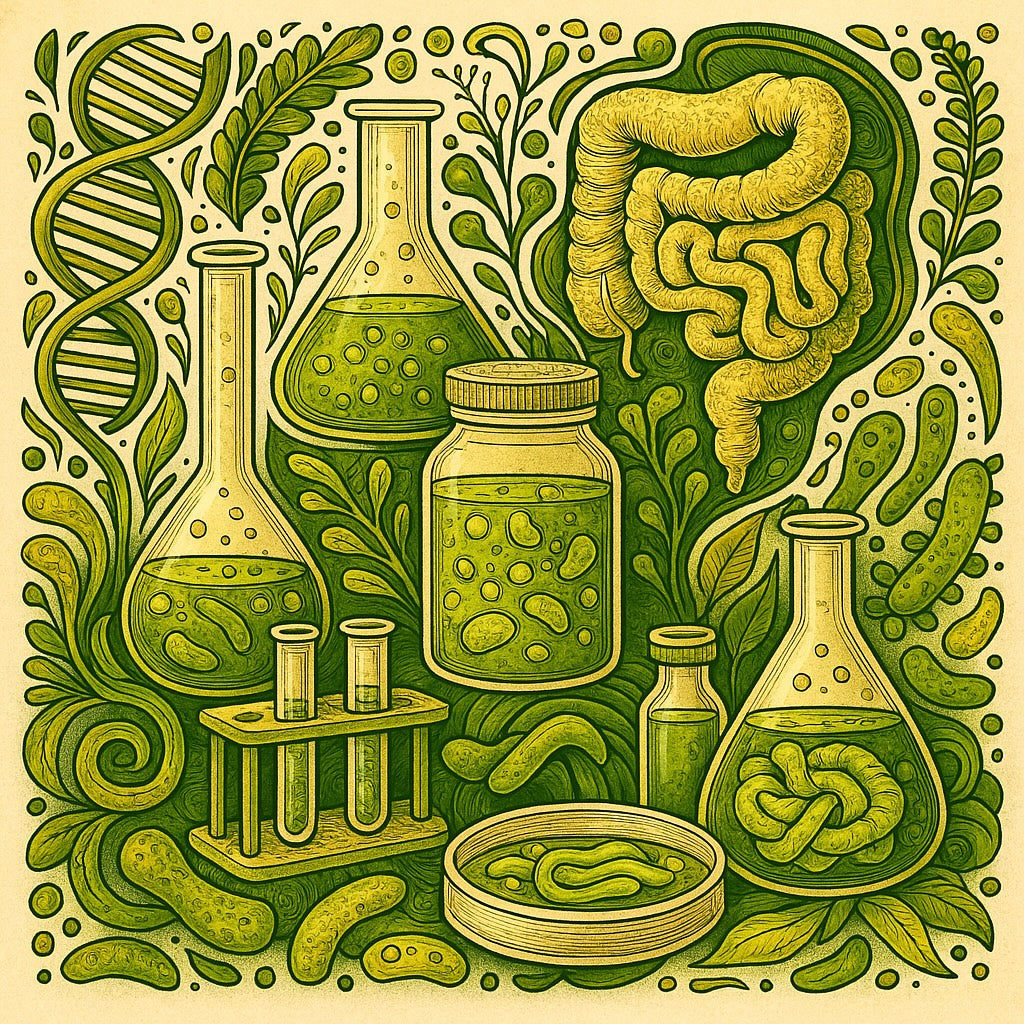By Andrea McBeth, ND
In early 2020, when the world was in lockdown, many aspects of medicine and healthcare came to a standstill—including the clinical work we were doing in fecal microbiota transplantation (FMT). As labs and stool banks paused operations due to new safety restrictions, I found myself reevaluating everything.
This shift was personal. My own mom had been struggling for years with digestive issues that disrupted her quality of life. She would go days without a bowel movement, despite trying all the usual gut support tools. During this pause in FMT availability, I offered her a sterilized version of the donor material we used in clinic—a completely autoclaved preparation that removed all live microbes but retained important microbial byproducts. A few days later, she called me with excitement: for the first time in years, she was having regular, healthy bowel movements every morning.
That moment validated what I had been sensing in clinic for some time. There was something powerful in the metabolic byproducts of the microbiome—what we now call postbiotics—and it might be possible to harness them without the complexity or risks associated with live bacterial transplants.
What is FMT, Anyway?
Fecal microbiota transplantation, or FMT, is a medical procedure in which stool from a healthy donor is transplanted into the gut of a recipient, often to help restore microbial balance. Though popularized in the past decade for specific clinical uses, the concept is ancient and surprisingly intuitive. Humans have long understood that stool is rich in nutrients and microbial life. From agriculture to veterinary medicine to modern human health, the idea of "seeding" life back into the gut isn't new—it’s just now being understood through a more scientific lens.
My early experiences in the FMT field sparked a deeper question: Could the benefits we were seeing in clinic stem from more than just live bacteria? As research on probiotics and microbiome science evolved, it became clear that microbial metabolites—compounds like short-chain fatty acids, indoles, and other signaling molecules—might be doing much of the heavy lifting. These postbiotics help communicate with the gut, immune system, and even the brain. What if we could isolate this component safely and consistently?
A Paradigm Shift: From FMT to Postbiotics
With safety and wellness applications in mind, we began experimenting with autoclaving donor material—completely sterilizing it while preserving its complex chemical fingerprint. The result was a shelf-stable, rigorously screened, donor-derived supplement that could be produced without live organisms. What started as an experiment soon became the foundation for a whole new kind of microbiome support.
Since 2017, growing research has shown how bacterial metabolites influence everything from gut lining integrity to mood, energy, and immune response. Our approach—focusing on the bioactive metabolites rather than live bacteria—aligned with this emerging science. And the more we learned, the more confident we became in the potential of postbiotics as a next-generation tool for gut health.
Building ThaenaBiotic®
From that foundation, we built ThaenaBiotic®: a human-derived, fully sterilized postbiotic supplement designed to deliver naturally occurring compounds produced by a healthy microbiome. Over the years, we’ve refined our methods through safety testing, quality control, and advanced metabolomic analysis to ensure consistency, purity, and impact.
We’ve shared ThaenaBiotic® with thousands of people—first through provider partnerships and now directly with consumers. We've seen it support healthy bowel movements, help people feel more regular and comfortable, and fit into wellness routines focused on gut balance and resilience.
Why This Matters
If you’ve ever felt like nothing works when it comes to your digestion, you’re not alone. Gut health is incredibly complex, and there is no one-size-fits-all solution. But supporting your body with microbiome-derived nutrients—compounds your body has evolved alongside for millennia—might offer a new layer of support.
ThaenaBiotic® isn’t a fecal transplant. It’s not a probiotic. It’s something new: a postbiotic designed to help you support your gut in a safe, science-informed way.
Join Us
We believe that gut health shouldn’t be out of reach. That’s why we’re making ThaenaBiotic® available both directly and through trusted providers. Whether you're just beginning your gut health journey or looking for new tools to add to your wellness routine, we're here to support you.
Want to learn more about our science and process? [Request our safety and research by emailing info@thaena.com.] We’re just getting started—and we’re so glad you're along for the journey.

